I am trying to call the method .enumerate() on an instance of a type which conforms to the protocol Sequence. According to Apple's documentation, this should be correct, since .enumerate is part of the Sequence protocol.
However, I receive this complaint from the compiler:
Member 'enumerated' cannot be used on value of type 'any Sequence<URL>'; consider using a generic constraint instead.
Yet, if I remove the type annotation, then it works.
Here is an example which reproduces the problem:
func example() -> URL? {
let fm : FileManager = FileManager.default
let appDir : FileManager.SearchPathDirectory = FileManager.SearchPathDirectory.applicationDirectory
let domMask : FileManager.SearchPathDomainMask = FileManager.SearchPathDomainMask.allDomainsMask
let appResourceValues : [URLResourceKey] = [URLResourceKey.localizedNameKey]
var appURLs : any Sequence<URL> = fm.urls(for: appDir, in: domMask)
//var appURLs : Sequence<URL> = fm.urls(for: appDir, in: domMask)
//var appURLs = fm.urls(for: appDir, in: domMask)
var appURL : URL? = appURLs.enumerated().first { (offset: Int, element: URL) in
try! element.resourceValues(forKeys: Set(appResourceValues)).localizedName!.contains("App Store")
}?.element
return appURL
}
There are two commented lines in the code above, which are alternate ways to instantiate appURLs. If I use the first commented line, which is the old Swift syntax apparently, then I receive an error telling me that in order to add a type annotation which enforces a protocol, I need to use any protocolName, and not protocolName. (According to a comment on another post, this was a recent change in Swift: Use of protocol 'YourProtocol' as a type must be written 'any YourProtocol' Error, https://github.com/apple/swift-evolution/blob/main/proposals/0335-existential-any.md)
If I use the second commented line, which removes the protocol annotation altogether, then the code works.
Is this a bug in Swift? How can I apply an annotation to indicate that it must conform to Sequence<URL> without breaking the code?
I tried to declare a generic type parameter, but Swift won't let me. None of these work:
associatedtype does exactly what I want: it creates a generic type parameter. But it doesn't work outside a protocol.
